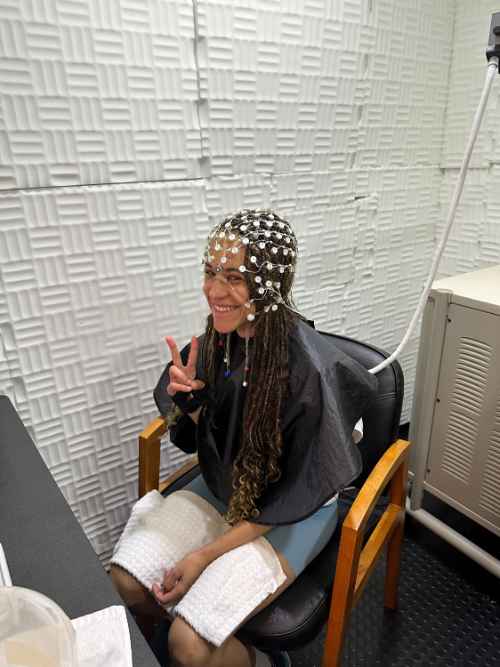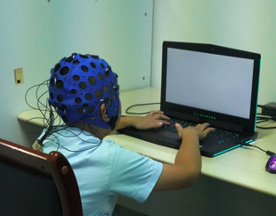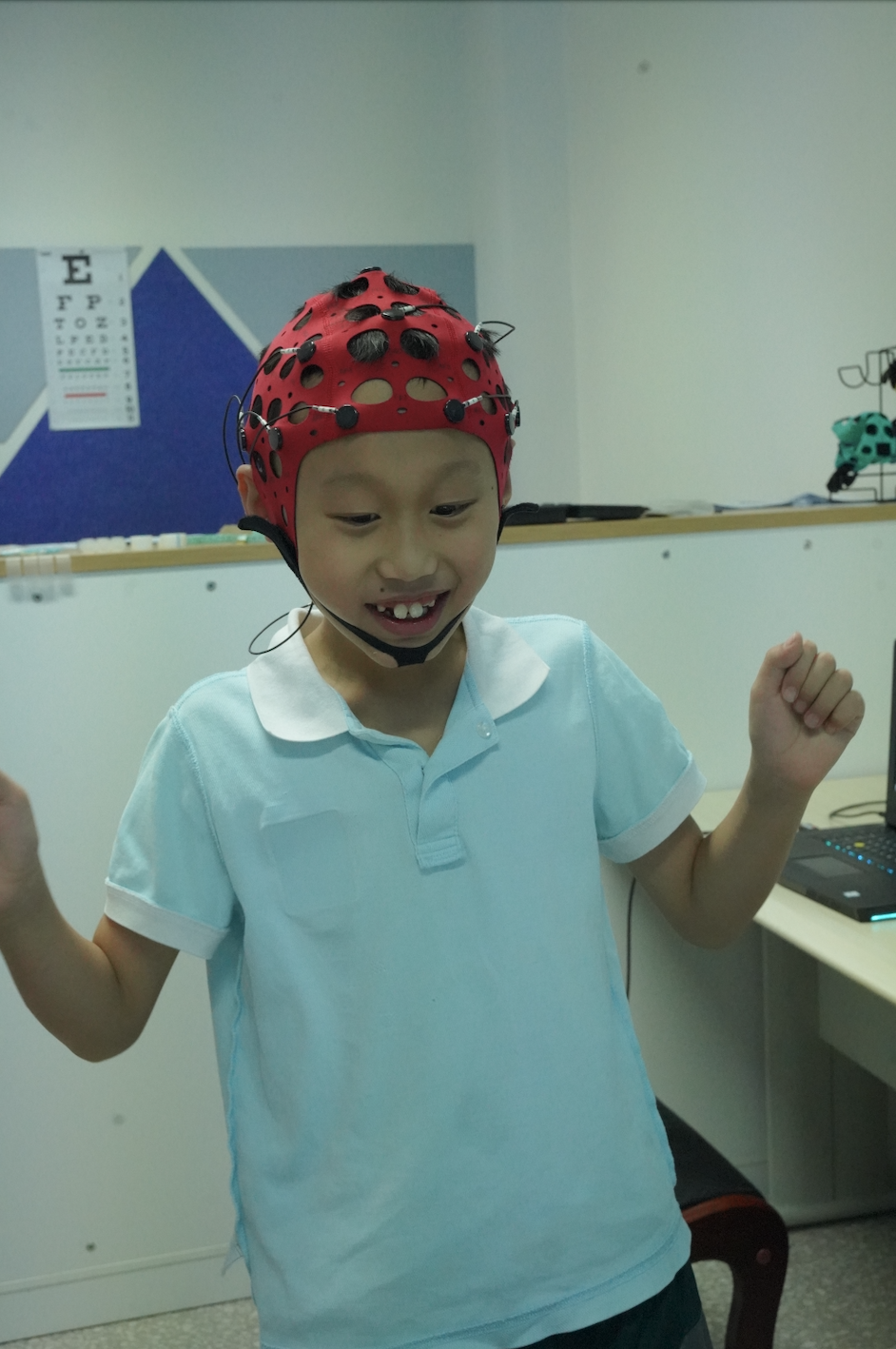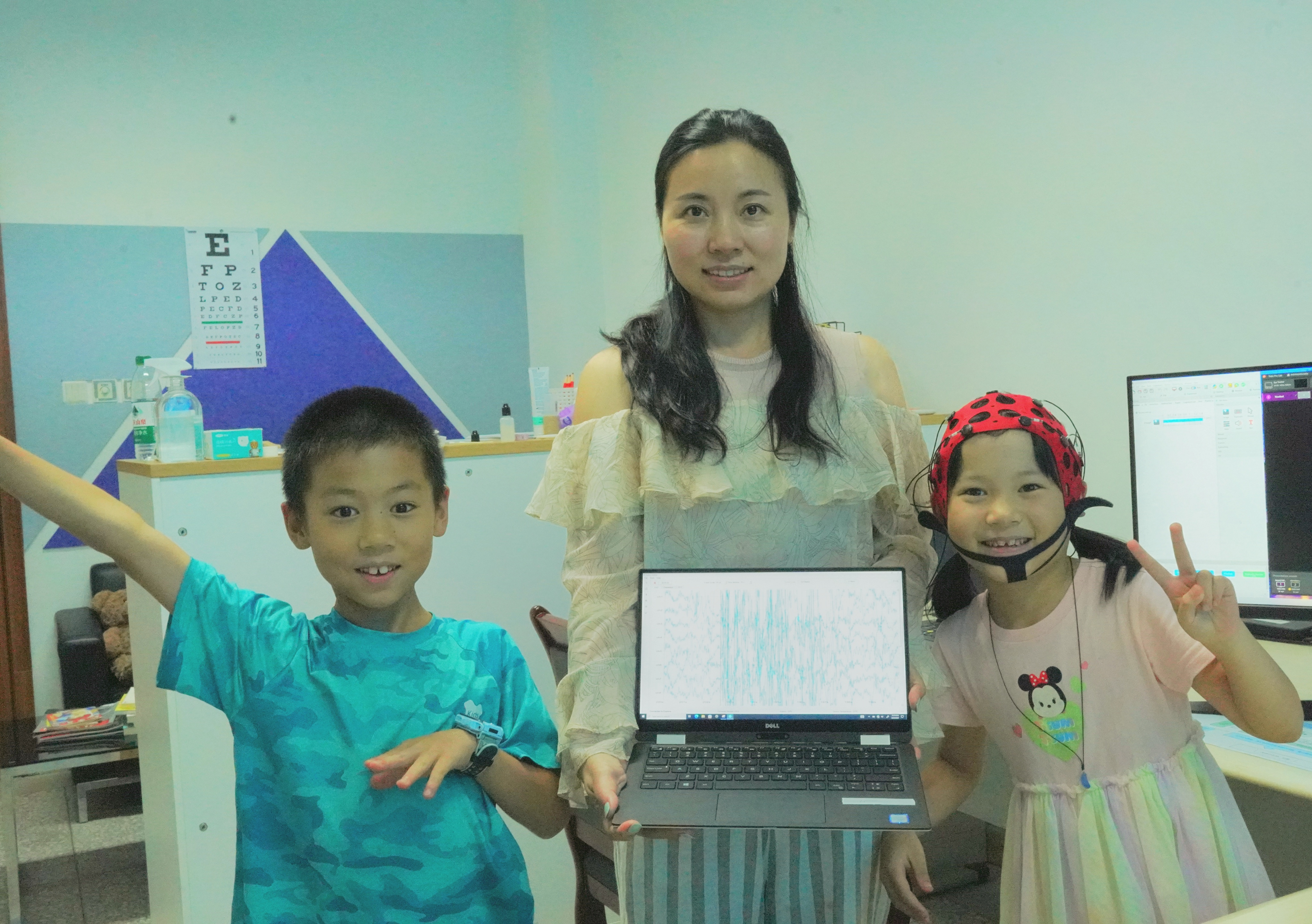Research Projects
We conduct experiments examining the neural underpinnings of aspects of language and cognitive processing, in typically developing children and adults as well as those exhibiting atypical or pathological development utilizing combinations of behavioral and electrophysiological techniques. This page provides short summaries of our research projects.
The Bio-based Learning State Intelligent Monitoring study
The Bio-based Learning State Intelligent Monitoring study is an interdisciplinary study integrating methods and insights from learning sciences, neuroscience, and artificial intelligence. Working at these intersections, we are exploring how physiological measures – specifically EEG and eye-tracking – can provide information about interpreting cognitive load state experienced by children as they complete arithmetic operations. Working with 90 fourth-grade students in an elementary school setting, we collected multimodal physiological data using a 16-channel mobile EEG system and a screen- based Tobii eye-tracker while students completed arithmetic operations designed to induce varying levels of cognitive load. The analysis extracted features including oscillation and entropy patterns from the EEG recordings, as well as pupillary responses and eye movement patterns from the eye-tracking data. These diverse features were used to train machine learning classifiers to identify different cognitive load states. This research represents a step toward developing systems that combine artificial intelligence, brain-computer interfaces, and eye-tracking technologies to provide insights into student learning states for more personalized learning experiences.
The REVEAL Study
What is REVEAL?
Researching the Effects of Violence Exposure on Attention & Learning (REVEAL) was a study that explored the effects of gun violence exposure on attentional mechanisms in the brain. Experiencing trauma can generate a state of hypervigilance and alter attentional systems at the neural level (Javanbakht et al., 2011); however, it is unclear how gun violence may specifically contribute to these attentional shifts. REVEAL aimed to provide an initial exploration into gun violence’s unique effects on the brain, and lay the groundwork for future research.
What did we study? How?
We had seventeen adults, aged 18-35, complete a computerized task called the Attention Network Test while wearing an EEG net. The ANT measures three aspects of attention: alerting, or preparing to respond to stimuli; orienting, or responding to spatial cues about the location of an impending stimulus; and executive control, or detecting and responding to conflicting stimuli (Fan et al., 2002). Electroencephalography (EEG) records the electrical activity in a participant’s brain while they complete a task like the ANT.
We also asked our participants questions about their level of gun violence, current mental and emotional health, and demographic information.
From our EEG data, we extracted event-related potentials (ERPs), which isolate electrical signals that can indicate unique brain responses to a specific stimulus. Capturing ERP responses during the ANT can highlight nuanced differences in neural activity, going beyond less precise behavioral measures like reaction time or accuracy.
What did we find?
REVEAL provided preliminary evidence that GVE may modify the brain’s attentional capabilities. GVE participants tended to exhibit a decreased response to alerting cues, potentially demonstrating hypervigilance. A heightened baseline alertness due to gun violence exposure may alter an individual’s ability to identify and respond to relevant cues, essentially overwhelming the attentional system and dampening the alerting response.
What’s next?
We’ll be presenting our findings and advocating for more robust neuroscience research into the effects of gun violence at the 2024 National Research Conference for the Prevention of Firearm-Related Harms in Seattle, WA this December. We are also developing the next iteration of this study to further study the neural effects of gun violence.
The Functional Movement Disorder- Exercise and Yoga (FMD-ey) Study
The Functional Movement Disorder- Exercise and Yoga (FMD-ey) study is a pilot feasibility study evaluating 8 people with Functional Movement Disorder (PwFMD) and age-matched controls before and after yoga and moderate intensity exercise session on a standard pre-cue EEG reaching task and resting-state EEG. The objective of the study is to observe neural responses to yoga and aerobic exercise among PwFMD versus their age-matched peers by assessing event-related brain potentials (ERPs) related to attention and motor planning.

The Digital and Print Media Study
Read the Research Paper Here!
Middle-schoolers’ reading and lexical-semantic processing depth in response to digital and print media: An N400 study
Article Source: Middle-schoolers’ reading and lexical-semantic processing depth in response to digital and print media: An N400 study
Froud K, Levinson L, Maddox C, Smith P (2024) Middle-schoolers’ reading and lexical-semantic processing depth in response to digital and print media: An N400 study. PLOS ONE 19(5): e0290807. https://doi.org/10.1371/journal.pone.0290807
























